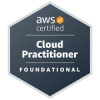
Cloud Consulting: Guiding Businesses to the Cloud with Strategy, Security, and Scalability
The rapid rise of cloud computing has redefined the way businesses operate, offering scalable, flexible, and cost-effective solutions for a wide range of industries. However, transitioning to the cloud can be complex and requires expertise in areas like architecture, migration, security, and ongoing management. This is where cloud consulting comes in, providing businesses with the guidance and support needed to make their cloud journey successful. In this article, we’ll explore what cloud consulting is, its key benefits, and the services cloud consultants provide.
What is Cloud Consulting?
Cloud consulting is a service provided by experienced professionals to help businesses assess, plan, migrate, and manage their cloud environments. A cloud consultant works with organizations to design a cloud strategy tailored to their unique needs, ensuring a smooth migration process, strong security measures, and optimized cloud performance. They offer expertise in areas like public cloud platforms (AWS, Azure, Google Cloud), private and hybrid cloud solutions, and cloud-native technologies (containers, microservices).
Cloud consulting is essential for businesses of all sizes, from startups needing cost-effective scalability to large enterprises focused on digital transformation. By partnering with cloud consultants, companies can avoid common pitfalls, optimize their cloud usage, and maximize the value of their cloud investment.
Key Benefits of Cloud Consulting
- Cost Savings
A primary benefit of cloud consulting is cost optimization. Consultants assess a business’s current and future needs to identify the most cost-effective cloud solutions, helping to avoid over-provisioning and unused resources. They can also design an optimized billing structure, making sure the company is only paying for what it actually uses. - Customized Cloud Strategy
Cloud consultants work to understand a company’s unique goals, needs, and challenges, allowing them to design a cloud strategy that aligns with these factors. This includes selecting the best cloud provider, determining whether a public, private, or hybrid cloud model is best, and outlining an implementation roadmap. - Faster Cloud Adoption
With the right guidance, businesses can migrate to the cloud faster, reducing potential downtime and avoiding disruptions. Consultants bring valuable experience, reducing trial-and-error periods and ensuring that best practices are followed from day one. - Enhanced Security and Compliance
Cloud security is a complex but crucial aspect of any cloud environment. Consultants bring expertise in securing data, implementing encryption, setting up access controls, and ensuring compliance with regulations like GDPR, HIPAA, or industry-specific standards. They create robust security frameworks tailored to the unique risks of cloud environments. - Scalability and Flexibility
One of the greatest advantages of cloud computing is its scalability, and cloud consultants help businesses plan for both current and future needs. Whether it’s enabling autoscaling or advising on infrastructure-as-code (IaC), consultants ensure companies can grow or reduce resources efficiently based on demand. - Continuous Improvement
The cloud landscape evolves rapidly, with new services, pricing models, and technologies emerging regularly. Cloud consultants stay up-to-date with these changes and ensure that their clients’ environments are optimized, secure, and efficient over time.
Core Cloud Consulting Services
- Cloud Readiness Assessment
Before making any changes, cloud consultants often conduct a thorough assessment to determine if a business is ready for cloud adoption. This includes evaluating the current infrastructure, applications, security protocols, and compliance requirements to create a plan that meets both technical and strategic objectives. - Cloud Strategy and Roadmap Development
A consultant works with the organization to develop a cloud strategy and roadmap tailored to their needs. This process involves defining objectives, selecting the right cloud provider, deciding on a deployment model (public, private, hybrid), and creating a phased migration plan. - Architecture and Design
Cloud consultants design the architecture of the cloud environment, ensuring it is both scalable and resilient. This can include designing virtual networks, storage solutions, load balancing, and disaster recovery setups. They also plan for high availability and fault tolerance to reduce potential downtime. - Cloud Migration Services
Cloud consultants handle the complex process of migrating applications, data, and workloads to the cloud. They assist in lift-and-shift migrations (moving applications with minimal changes), re-platforming (making minor adjustments for cloud compatibility), or refactoring (modifying applications for a cloud-native approach). - Security and Compliance Management
Cloud consultants focus on setting up robust security measures, including data encryption, identity and access management (IAM), firewalls, intrusion detection systems, and multi-factor authentication. They also help ensure compliance with relevant regulatory standards by implementing monitoring, logging, and alerting. - Optimization and Cost Management
Consultants analyze cloud usage patterns to find ways to optimize costs. They implement strategies such as rightsizing, reserved instances, and automated resource scaling. By continuously monitoring the environment, they help businesses maintain an optimized setup that prevents waste. - Managed Cloud Services and Support
Some cloud consultants offer managed services for businesses that prefer an outsourced approach. This includes ongoing support for cloud operations, proactive monitoring, and performance management to keep the environment running smoothly over time.
Selecting the Right Cloud Consulting Partner
Choosing a reliable cloud consulting partner is crucial. When selecting a cloud consultant, businesses should consider the following factors:
- Experience and Expertise: The consultant’s experience with relevant cloud platforms, industries, and technologies is key. Look for certifications like AWS Certified Solutions Architect, Microsoft Azure Solutions Architect, or Google Cloud Professional Cloud Architect.
- Vendor-Neutral Advice: A good cloud consultant offers unbiased guidance, helping businesses choose the best cloud solutions based on their needs rather than any platform allegiance.
- Security Focus: Security expertise is essential, especially for businesses dealing with sensitive data or regulatory requirements. Look for consultants with security certifications and a clear approach to managing cloud security.
- Track Record and Testimonials: Reviewing case studies, testimonials, or referrals can provide insight into the consultant’s reliability and previous successes.
- Support Services: Consider whether the consultant offers post-migration support or managed services, as many companies benefit from continuous cloud management.
The Future of Cloud Consulting
As more companies adopt hybrid and multi-cloud environments, cloud consulting will become even more integral to managing complex cloud ecosystems. With trends like artificial intelligence, edge computing, and serverless architectures on the rise, cloud consultants will need to continuously update their skill sets and broaden their services.
In the future, cloud consulting may expand to include:
- AI and Machine Learning Integration: Cloud consultants will help companies harness AI and ML services to analyze data, automate processes, and drive insights, allowing businesses to leverage these technologies without requiring in-house expertise.
- Edge Computing: Edge computing brings data processing closer to users, enabling faster, localized responses. Cloud consultants will help companies design architectures that leverage both edge and central cloud resources.
- Multi-Cloud Strategy: As companies increasingly choose multi-cloud approaches to avoid vendor lock-in and improve redundancy, consultants will help manage and optimize these diverse environments.
Conclusion
Cloud consulting plays an essential role in today’s digital transformation efforts, empowering businesses to adopt, optimize, and scale their cloud solutions with confidence. By partnering with expert consultants, companies can navigate the complexities of cloud adoption, avoid costly mistakes, and fully realize the benefits of a modern cloud environment. As the technology continues to evolve, cloud consulting will remain a vital service, guiding businesses to leverage the cloud for competitive advantage and growth.



